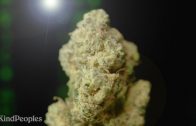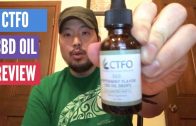Medical Marijuana update from Pennsylvania doh
https://www.AllOrganicMedicalMarijuana.com
https://www.AllOrganicCBDOil.com
February 13, 2020
The following are highlights from Medical Marijuana Advisory Board meeting. They are based on notes taken by Luke’s wife. It is far from a complete transcript / account of the meeting & edited by Pete Gustis to be more concise because youtube won’t allow the full story due to limitation in number of words.
Two new Board members were introduced. Patient Advocate Bhavini Patel, and David Steffen from the Pa Chiefs of Police Association.
Board Chairperson and Secretary of Health Dr. Rachel Levine gave an update on EVALI (e-cigarette or vaping product use-associated lung injury). Her recommendation is to not use illegally obtained vape products, especially those containing THC.
Dr. Levine announced that a second research summit will be held in late March with the 8 Academic Clinical Research Centers (ACRC) and 3 Clinical Registrants (CRs). No applications came in for changes to serious medical conditions. The deadline to submit applications to change serious medical conditions for the next meeting is close of business April 26th, 2020.
MMJ Director John Collins update. In acknowledging the presentation on the patient/caregiver survey he added that there is a continued need for a diversity of strains. They are looking at the complete costs to patents, including the cost of getting certified, travel and product costs, etc.
Director Collins has continued to conduct outreach with Pa law enforcement, including meeting with 46 local departments and also Department of Corrections probation officers. He shared with them the concept of the “3 Cs” that patients should adhere to. That would be to carry your mmj I.D. “card”, keep your mmj products in the original “containers” and keep your “cash receipt” to help minimize a negative law enforcement contact should you be traveling with your mmj.
Luke’s NOTE: there are additional precautions to minimize a negative law enforcement contact including don’t transport your mmj unless you have to, keep it in a secure and out of reach place in your vehicle, like the trunk, don’t smoke you cannabis or do other activities not allowed by the program, don’t smell like weed, keep your vehicle registered, inspected and in good working order, obey traffic laws and if you are the driver, don’t volunteer that you are a mmj patient, because the assumption would be that you would fail a DUI blood test. Unscrupulous cops know that and may pursue a DUI investigation to bust you.
Now, 5 more Grower/Processors are shipping product (15 of 25 have shipped products). 22 of the total 25 are considered “operational”, meaning they can grow plants & produce & ship products. Most of the phase 1 GPs are expanding their operation & all will have to submit plans for expansion to re-new their permit. Fyi, the GPs are not limited in how large they can grow their operation or the number of plants they grow.
Green Leaf Medical (GLeaf) of Bedford Co is one of the shining examples of expansion in that they are expanding their 100,000 sq foot facility to 280,000 sq feet with a five fold increase in employees from 100 to around 500.
By The Numbers: 287k people are registered in the program, including renewals. This breaks down to 261k patients and 26k caregivers, with 266k cards actually issued. 168k active certified patients visit dispensaries weekly with an average of 2 to 2.5 visits to dispensaries a month by patients. Since the beginning of the program there have been 3.4 million dispensary visits. To date, there have been $711m in sales, which breaks down to $288m in sales from GPs to dispensaries and $423m in sales from dispensaries to patients. Just under 1,300 practitioners are certified with around 1,800 registered (at least started the process). There are 77 dispensaries operating. The average order of dry leaf was a little over $140 when it was introduced in summer of 2018 to now costing about $110 (I’m not sure of the total story behind this but it could be explained that since dry leaf is not as available now, orders are smaller, so less is spent per order).
Director Collins reviewed the current data on the serious medical conditions that patients are certified for. The primary certifying conditions (some patients are certified for more than one condition) include PAIN as the number one condition at 42.02%, then ANXIETY at 14.94%, PTSD at 12.33%, CANCER at 6.47%, NEUROPATHIES at 6.28%, OPIOID USE DISORDER at 3.01%, DAMAGE TO THE TISSUE OF THE CNS at 2.12%, INFLAMMATORY BOWEL DISEASE at 2%, MS at 1.56%, EPILEPSY at 1.20%, CROHN’S DISEASE at 1.16%, followed by all other conditions at less than 1%. Fyi: anxiety continues to increase, but at a much slower rate & is close to plateauing as Opioid Use Disorder also.
The next meeting is scheduled for Tuesday, May 12, from 10 a.m. to noon in the Forest Room, Meeting Center, Keystone Building, 400 North Street, Suite 114 East, Harrisburg, PA















